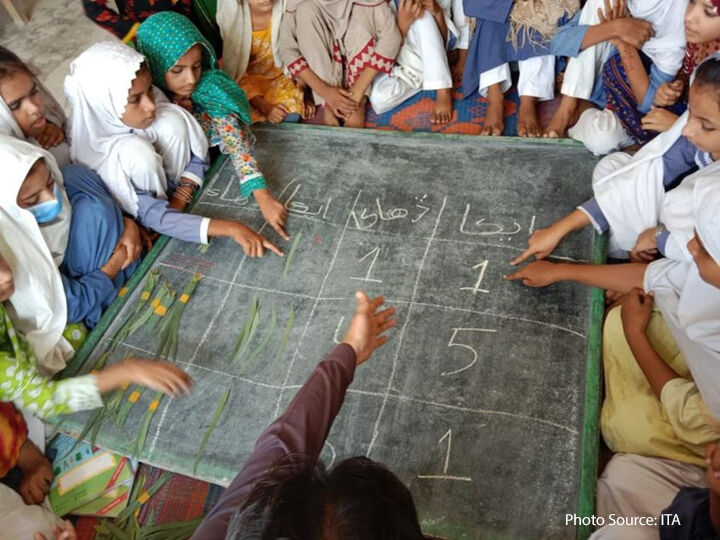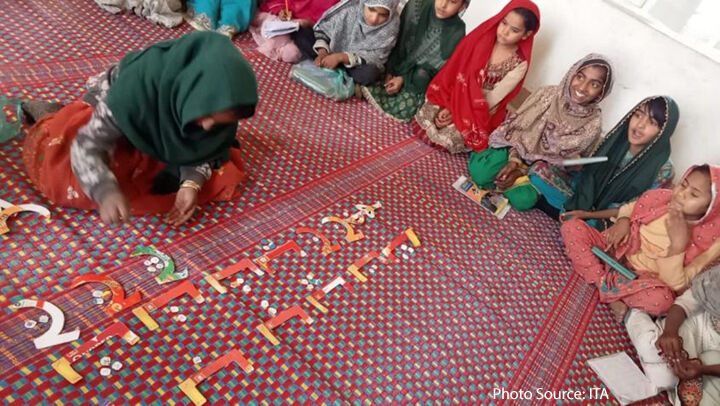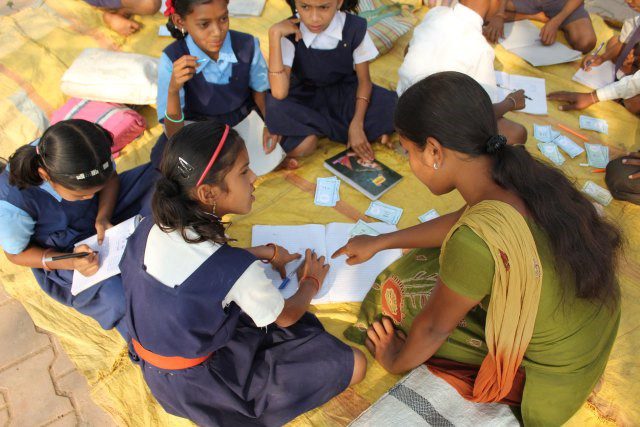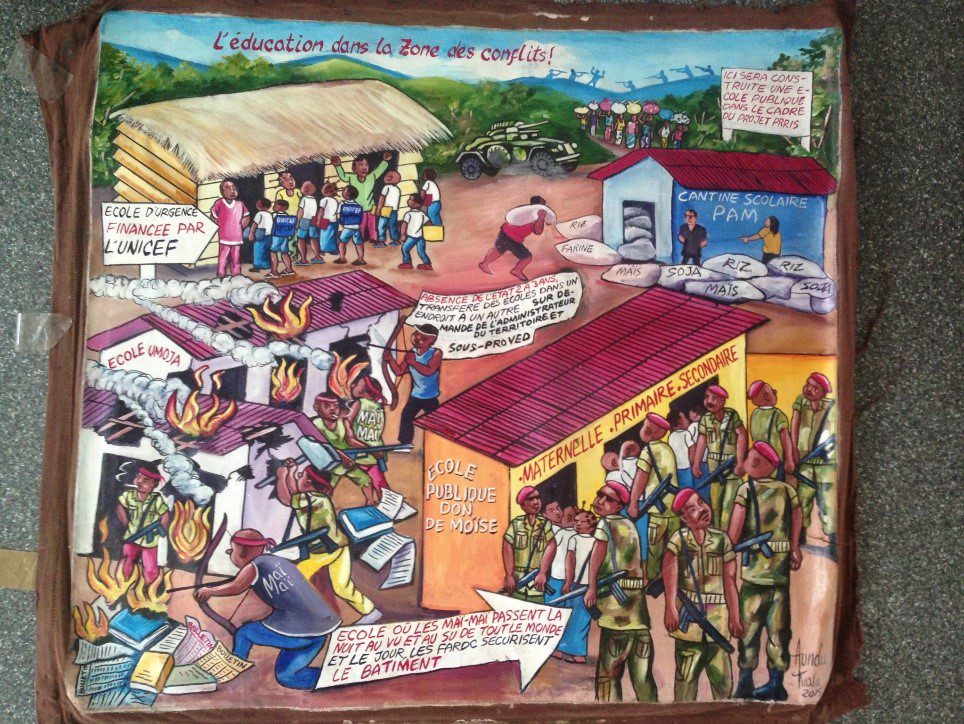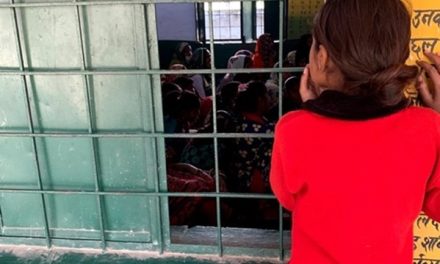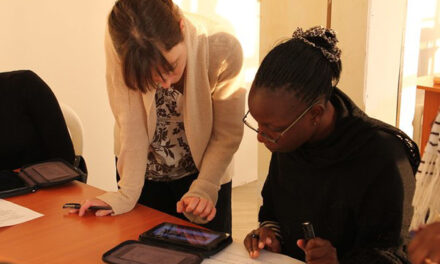This blog was written by Baela Raza Jamil, CEO Idara-e-Taleem-o-Aagahi (ITA) and Founder Pakistan Learning Festival (PLF).
Teachers are the largest workforce in Pakistan, as they are in many countries of the world. According to the latest Economic Survey of Pakistan 2022-23, there are 1.82 million teachers across all sub-sectors of education, a conservative estimate of under-documented data. There have been significant shifts in this profession, elevated as the prophets’ legacy, but for decades seen as the main culprit for the learning crisis, due to poor pedagogy, attitudes, preparation and classroom practices. Recently, teachers have been in the spotlight to reclaim their legacy as ‘solution providers’ and catalysts for improving quality. In many countries, impressive initiatives are underway for nurturing teachers’ magic (STIR, Schools2030, Workforce Transformation, New Education Initiative (NEI).
Emergencies become an opportunity to bring to the forefront teachers in action who are never given a chance to share their voice. In Pakistan, as elsewhere, it was the scale and nature of the COVID-19 emergency that provided an opportunity to hear, upgrade and uplift teachers from passive to active actors on our education landscape. More importantly, emergencies have become an opportunity to take stock of multiple system level initiatives that have elevated the possibilities for reclaiming teachers’ potential and legacy.
In Pakistan, shifts in teachers’ profiling are multiple and must be factored into our search for active solutions in the classrooms and education systems. These include :
- installing a higher qualification criteria and merit-based third-party recruitment over the past 15 years across provinces, upgrading the caliber of teachers from the historical low of ‘matric/Primary Teacher Certificate (PTC)’ profiling;
- options offered for early retirement to phase out low qualifications and seniority based appointments blocking school improvement with upgraded workforce;
- direct recruitment on merit without requirement of outdated professional qualifications B.Ed/M.Ed, etc. with on-the-job comprehensive induction;
- creating a new cadre of early childhood teachers (ECTs) at a pay scale higher than primary (Sindh BPS 15/ECT vs. BPS 14/primary);
- teacher training institutions to partner with private sector through public-private partnerships for improvement;
- teachers provided with opportunities to become innovators in classrooms, promoting literacy and holistic design thinkers in public sector schools under various mainstream initiatives (AKU-IED, LUMS-SOE, Teach for Pakistan, Schools2030/AKDN, ITA/Room to Read, etc.);
- rapid, and at-scale upgrading of teachers’ technology skills/Microsoft licensing during COVID-19 – over 600,000 teachers, in the public sector, with an equal number in the private sector and teachers at tertiary level;
- use of technology and hybrid options for year-long induction training and continuous professional development;
- teachers’ licensing initiated in Sindh in 2023.
At the risk of being labelled an optimist, these trends must be accounted for in our search for evidence, planning and strategic thinking for education transformation in Pakistan. Many of these shifts were visible in two recent conferences with active presence of empowered practitioners who participated in the policy dialogues on foundational learning and early childhood care and education (ECCE) in Islamabad and Karachi (June-July 2023).
Both conferences were calls for urgent attention to foundational learning and early childhood education focusing on 3-8 years as a key investment for lifelong learning, encompassing literacy, numeracy and social emotional skills (SEL). The Pakistan Learning Conference in Islamabad by the Ministry of Federal Education & Professional Training gave a nationwide call for a “Foundational Learning Movement’ and the Sindh Education & Literacy Department, Government of Sindh conference on Foundational Learning and ECCE in Emergencies.
Emergencies are fast becoming a norm since COVID-19, and recurring climate change related floods, e.g. Sindh was hardest hit in 2022 ‘monster floods’, with 60% infrastructure destroyed/damaged. There is an urgency to embrace emergencies as opportunities at systems level for timely response and proactive support across sectors of health, nutrition and social safety nets. The two sub-sectors of pre-primary, and lower primary (3-8 years) need attention as a seamless age spectrum of strong learning and transition; an opportunity in crises. Emergencies must not be viewed only as a supply chain of inputs during relief and recovery phases, but through an outcomes-based lens to transform learning through holistic and multi-sectoral planning and implementation. The shift from access to learning is long overdue in emergencies. Longitudinal research highlights the horror of prolonged learning and earning losses when emergency interventions are treated merely for ‘light touch temporary rehab’ projects.
More than 60 teachers on the front line in recurrent emergencies in Sindh actively participated in the thematic working groups at the Karachi conference (11-12 July, 2023), sharing forceful practices for addressing education under threat, to build forward better. Inspired by insights and evidence from ministers, senior civil servants, experts, development partners, teacher leaders and activists, they felt privileged to be present at the policy forum. The outcomes and quality gap in emergencies has been endorsed by the Global Education Cluster Annual Partners Meeting 2023. The teachers demanded that the current reporting and mapping of education in emergencies must have a more explicit position for foundational learning and ECCE for building a solid investment case for integrating within education policies, plans and systems. The headteachers/teachers were keen to share learning solutions created and curated by them during emergencies and accessible to all. Stakeholders demanded that an action roadmap must be mainstreamed in the working of the Cluster/disaster risk reduction groups, targeting the poorest, girls, children with disabilities, minorities, and refugees.
Inputs to the Karachi Call to Action 12 July, 2023 for Foundational Learning and ECCE in Emergencies leveraged the Transforming Education Summit (2022), TES-Call To Action, World Conference for Early Childhood Care & Education (WCECCE 2022) and Global Education Cluster’s principles of “Collaboration, Coordination and Integration” in plans and actions during emergencies. Muhammad Qasim Soomro, an activist parliamentarian gave a call for action on ‘What can be learnt from other sectors (health/WASH) adapting to local context-driven approaches’ and partnerships with ‘incentives for districts that work’ through financing awards (National/Provincial Finance Commission). The participants shaped the Call to Action in the following five succinct and overlapping areas.
- Foundational learning and ECCE as priority sectors that need multi-sectoral planning, emergency preparedness in pre- and in-service training, flexible learning supporting headteachers/teachers with an updated directory of accessible learning packages and inclusive outcomes-based measures for interventions.
- Content and pedagogy: For ECCE, build skills in the Nurturing Care Framework, climate change, play-based pedagogy, parental and community engagement and SEL. For foundational learning, initiate simple assessment of children in affected schools/areas with a focus on academic and non-academic areas of literacy, numeracy mapped to student learning objectives, integrating SEL and climate change content and tools. Build capacity for teaching at the right level /accelerated learning to learn, co-create content and holistic implementation in emergency contexts.
- Urgency for a common agreed set of simple tools for assessment and tracking of ECCE and foundational learning with digital assessments/apps where possible and agreed indicators accessible to all organisations working in emergencies.
- Continuity of learning for ECCE and foundational learning must be in safe and/or culturally weather-appropriate temporary learning spaces with accelerated and flexible learning approaches in both face-to-face and hybrid formats, with appropriate active libraries ensuring capacity building and support for teachers/volunteers with community engagement.
- Engage institutionally with multi-sectoral actors on the ground for health, nutrition and social safety nets for stabilising the poorest most vulnerable groups, supported by the National Database and Administration Authority (NADRA) in birth registration and access to emergency cash transfers.
The recommendations benefited from deep insights from the Ministers for Education and Health/Population in Sindh, Syed Sardar Ali Shah and Dr. Azra Fazal Pechuho, for care and collaboration with parents and teachers for learning as common sense principles of practice. The Secretary of the Sindh Education & Literacy Department, Ghulam Akbar Lagharim, called for a bold Sindh Learning Program. The teachers present at the conference are extraordinary multipliers, representing formal and informal alliances and associations, reaching out to millions of children from the front lines and ready to implement the Call to Action. Thousands of teachers are deeply invested in reclaiming their status as committed passionate changemakers for foundational learning and ECCE in emergencies and beyond. Pakistan must welcome shifts in workforce performance for reducing the learning poverty rate from the current rate of 79% of 10 year olds unable to read with comprehension.

